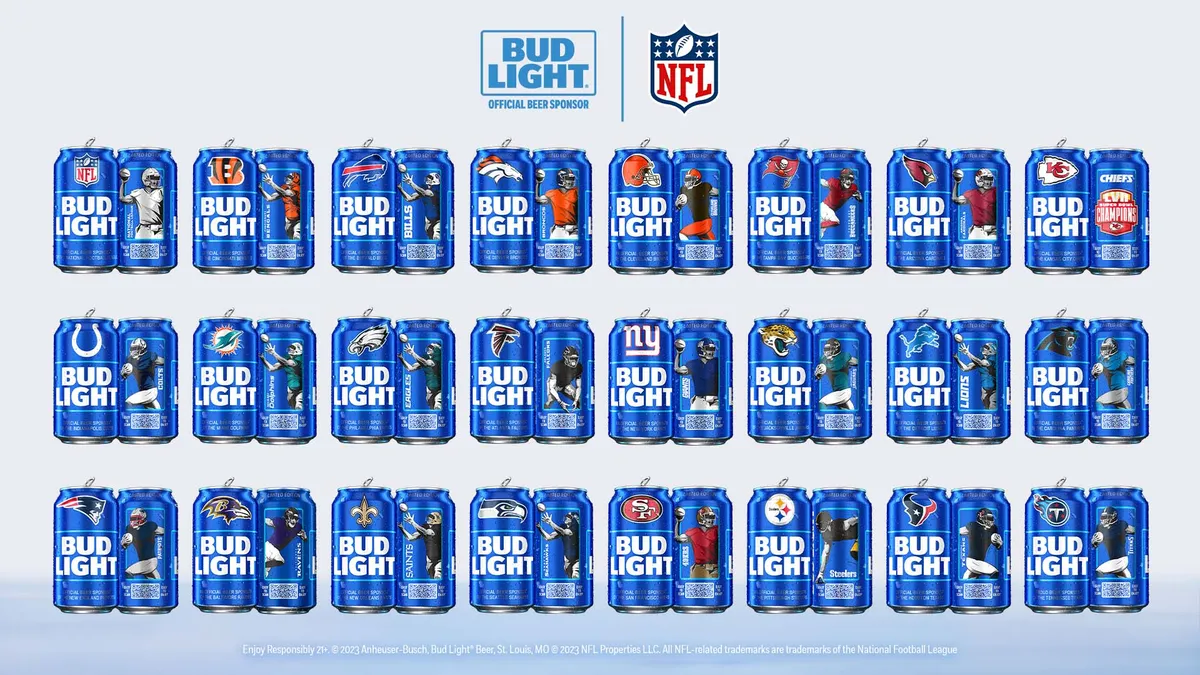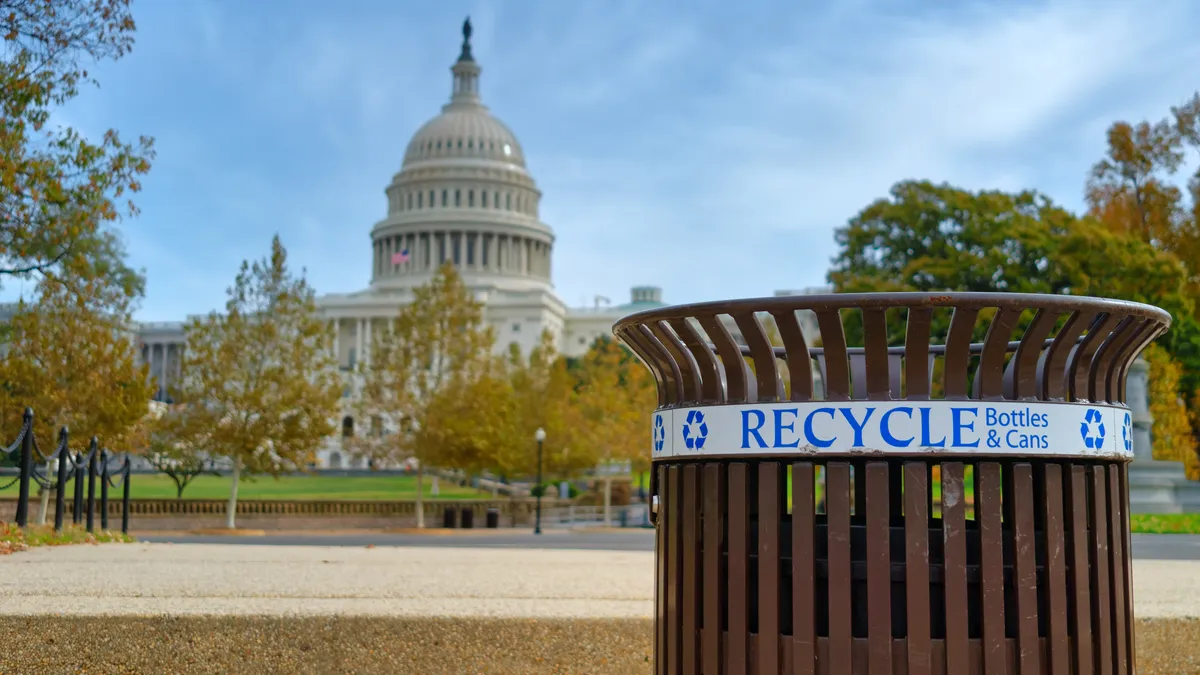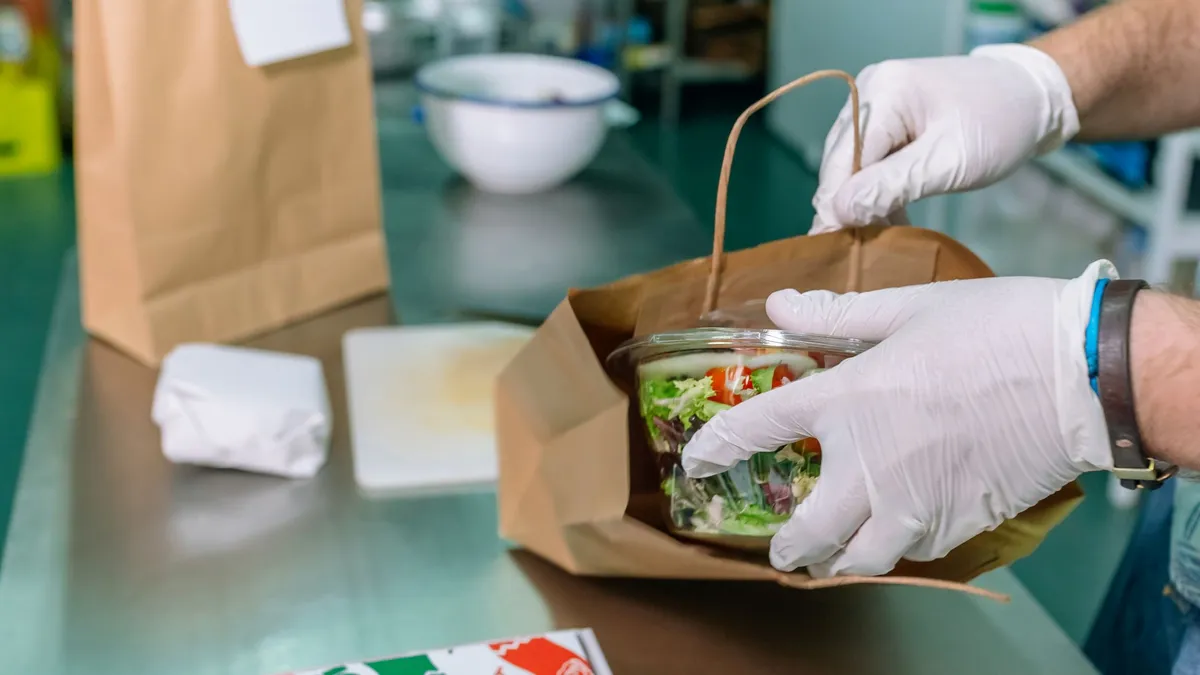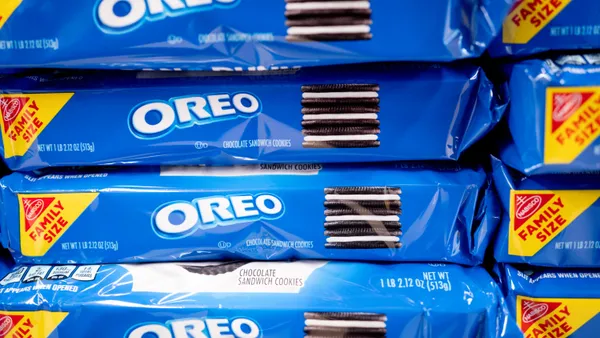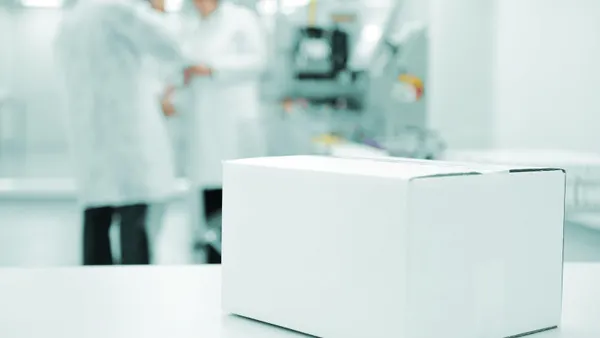Companies constantly innovate with technology and redesign their packaging. Here’s a look at five recent examples of product redesigns, material switches and sustainable packaging solutions on Packaging Dive’s radar.
Are you ready for some football?
Bud Light is expanding its football-themed can designs to 20 college teams across the country, Anheuser-Busch announced Wednesday, available at stadiums and everywhere Bud Light is sold. That follows last week’s announcement that limited-edition National Football League team packaging is back for another year, with cans featuring team logos and player illustrations. Both the college and pro edition cans have QR codes that lead consumers to opportunities to win prizes including fan merchandise.
Anheuser-Busch InBev CEO Michel Doukeris suggested on the company’s Aug. 3 earnings call — which followed notable hits to Bud Light sales in light of a boycott — that it would redouble its football focus. Consumers have indicated they want Bud Light to “concentrate on the platforms that all consumers love, such as NFL ... We are taking the feedback and working hard toward our consumers' business every day across the world,” Doukeris said.
Recycled cups curveball
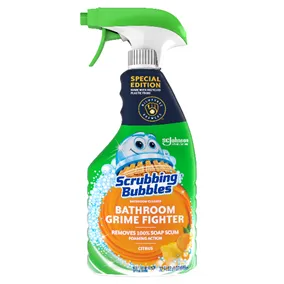
SC Johnson, the Wisconsin-headquartered consumer goods manufacturing company whose brands include Windex and Ziploc, announced this week it has created spray bottles for Scrubbing Bubbles cleaner using plastic from cups recycled at sports venues. One-quarter of the plastic comes from plastic cups collected for recycling at Milwaukee Brewers and Milwaukee Bucks games, and the bottles are made from 100% recycled plastic overall. According to SC Johnson, the bottles are recyclable.
The special-edition bottles will be available in 12 Wisconsin supermarket locations through October. SC Johnson stated that the Brewers are “the first U.S. professional sports team to link a waste stream to a specific product.” SC Johnson’s CEO has been vocal in supporting extended producer responsibility legislation.
More meaty matters
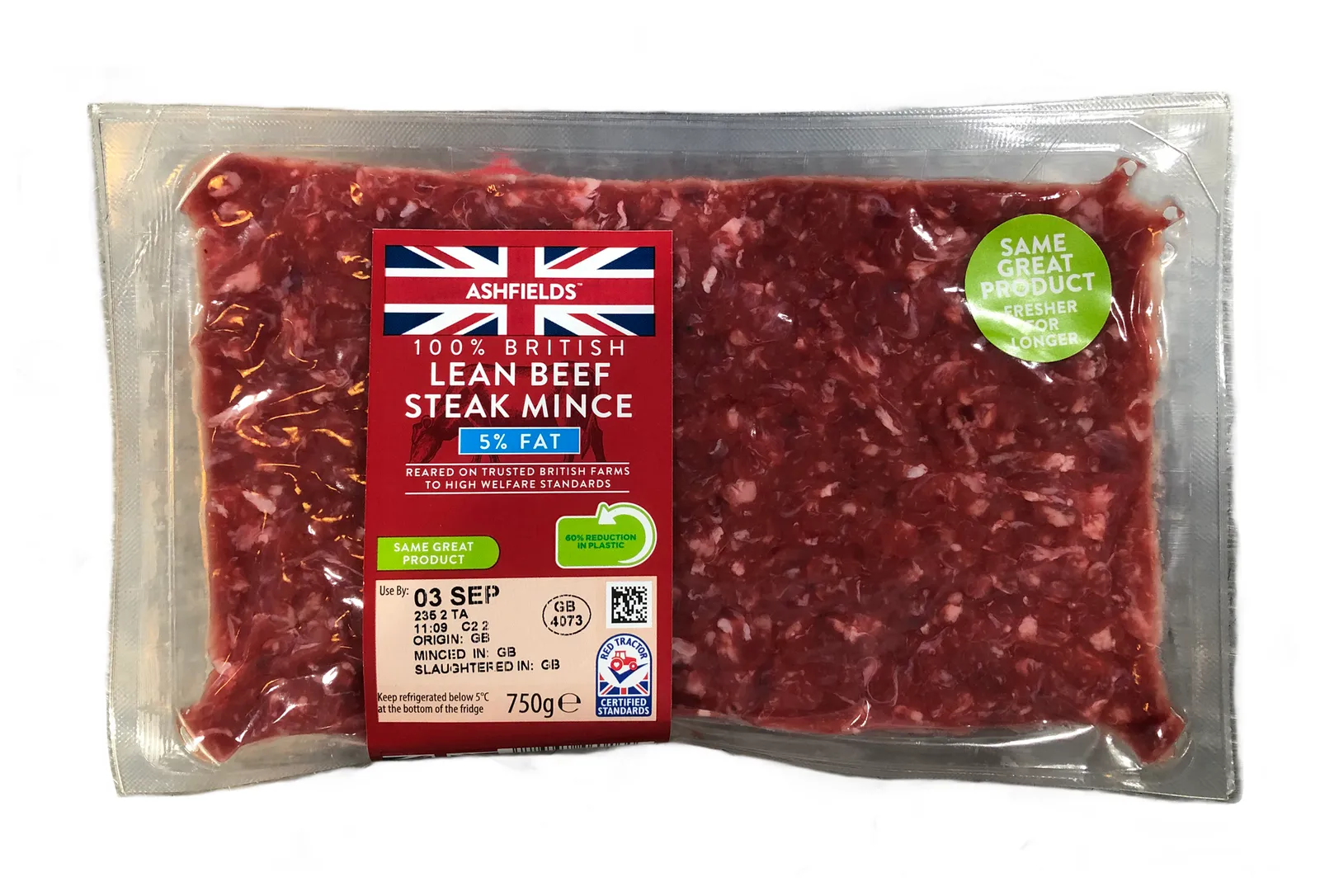
Aldi is following other U.K. grocers, like Sainsbury’s and Lidl, which this year changed their beef packaging to cut down on the amount of plastic used. Aldi announced plans this week to trial vacuum and flow-wrap packed minced beef, a move it says could increase product shelf life and cut plastic packaging by as much as 73%. The new packaging removes the need for a paper lining, Aldi says. One purpose of the trials is “to see which packaging customers prefer,” according to the announcement. U.K. grocer Sainsbury’s faced outcry from consumers who said its lower-plastic minced beef packaging turned the meat “to mush.”
Aldi also announced in the U.K. on Friday that it has removed all single-use cutlery from its “Food to Go” offerings “to encourage customers to use reusable options instead.” In June, the chain announced it was making all milk bottle caps colorless to improve their recyclability.
Kicking paper packaging to the curb
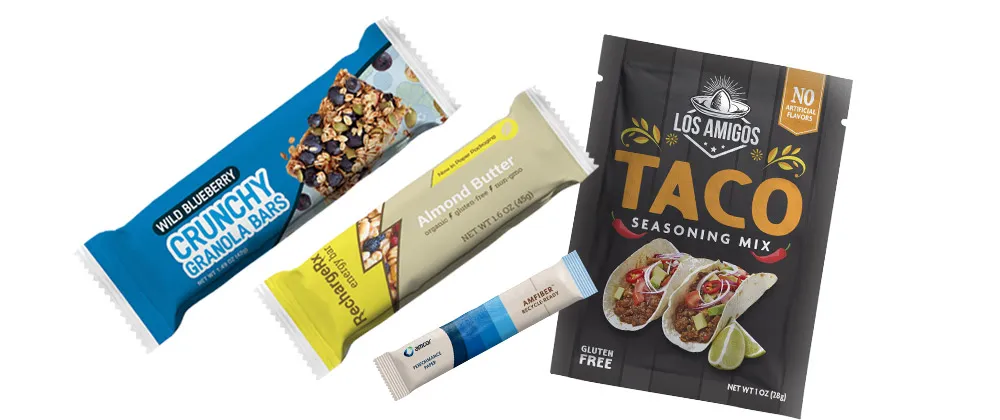
Amcor this week announced the North American launch of its AmFiber high-barrier laminated paper packaging, which it says is prequalified by How2Recycle as “widely recyclable” and meets repulpability standards for curbside recycling. Amcor says it is “recyclable in most paper recycling streams” and “provides improved barrier and packer efficiency compared to the existing coated papers.”
Amcor says the product is suitable for a variety of food applications and runs on existing flexible packaging equipment.
Flat out recycled
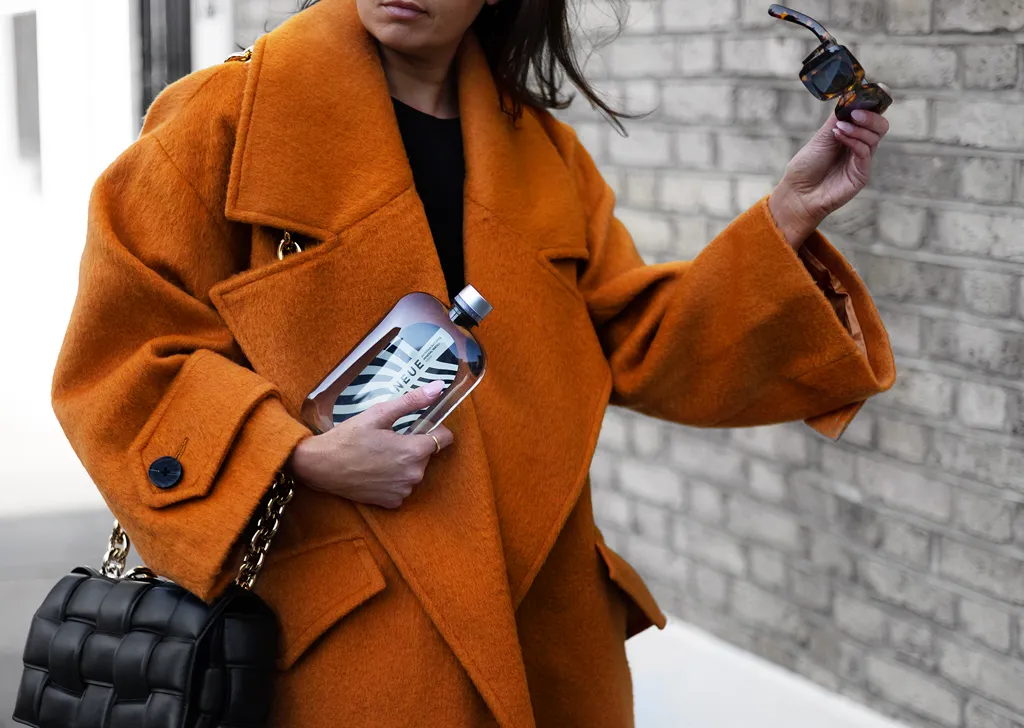
Berry Global announced last week it’s packaging Neue Water in reusable and recyclable bottles made entirely from recycled PET (excluding the caps). The flat bottle shape is designed to fit easily into pockets, bags and seatback storage. “The flat shape challenged the injection stretch blow moulding (ISBM) process for traditional PET bottle manufacture, and Berry successfully adapted the technology in order to accommodate the new design,” the announcement states.



